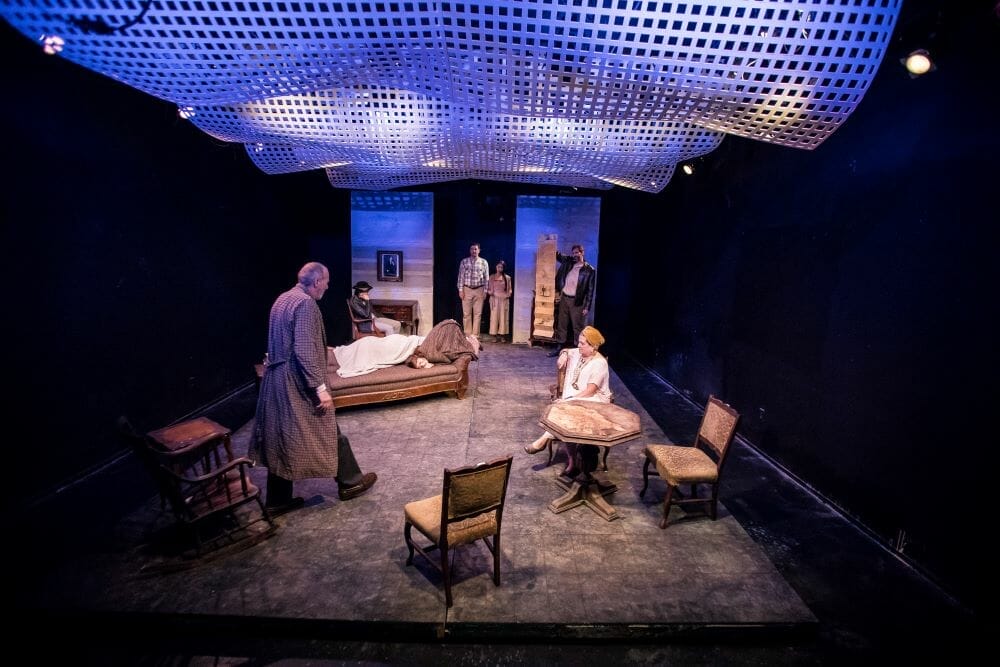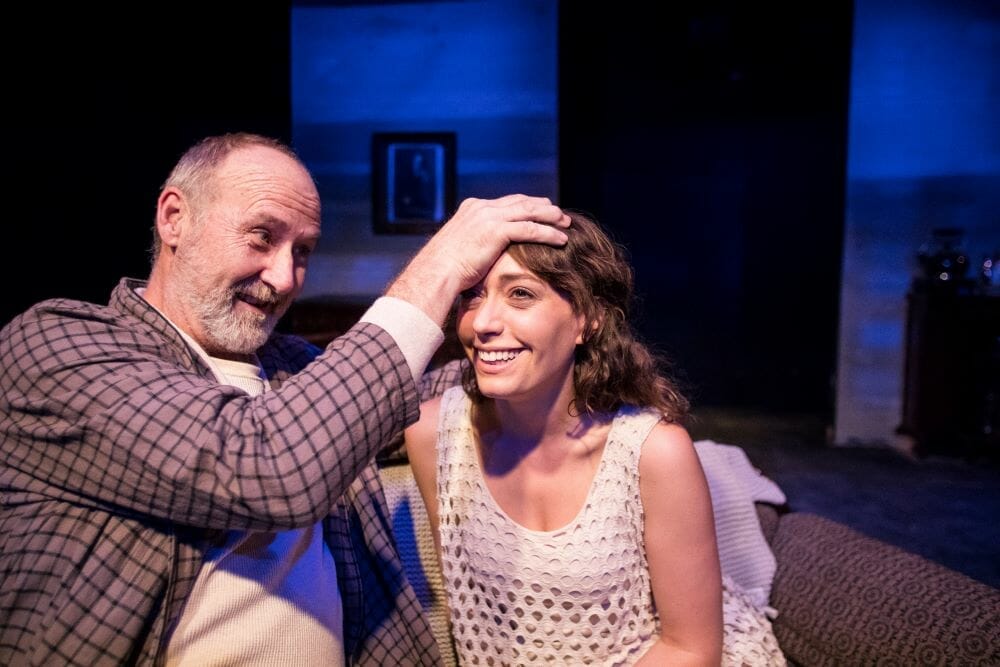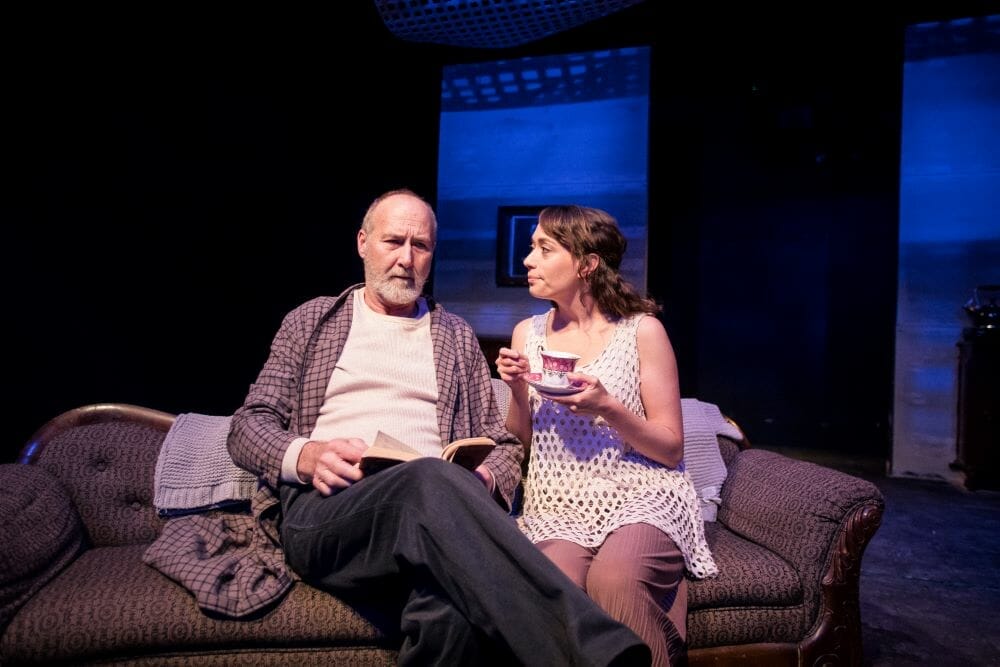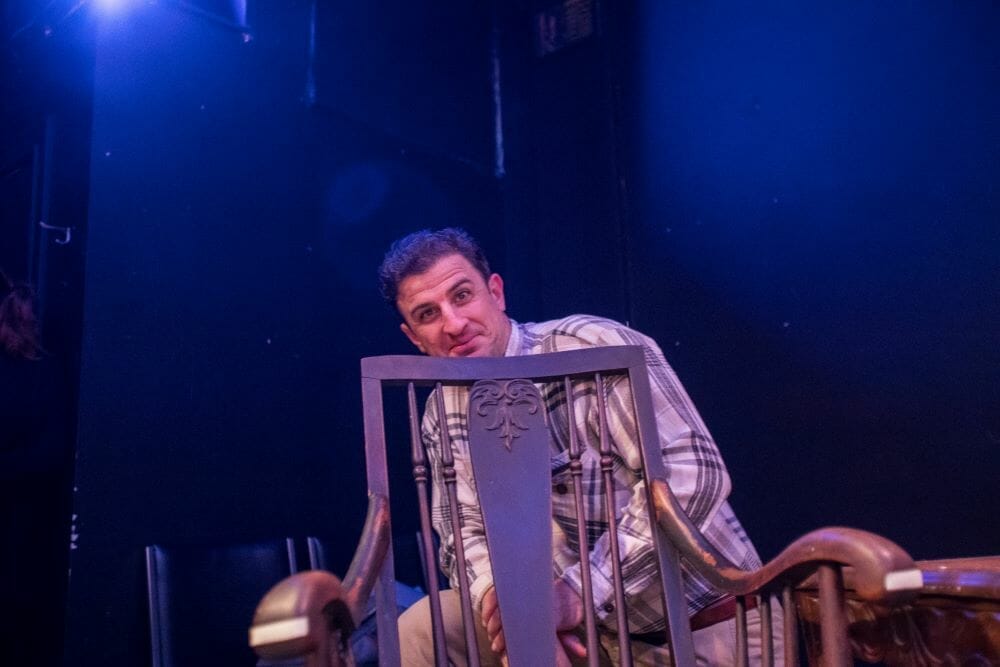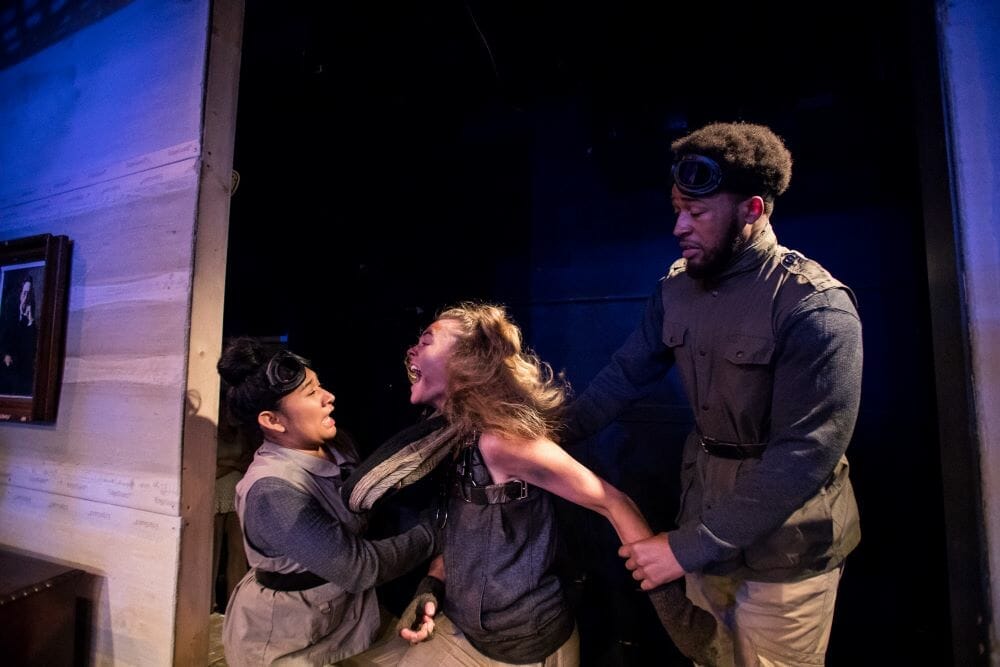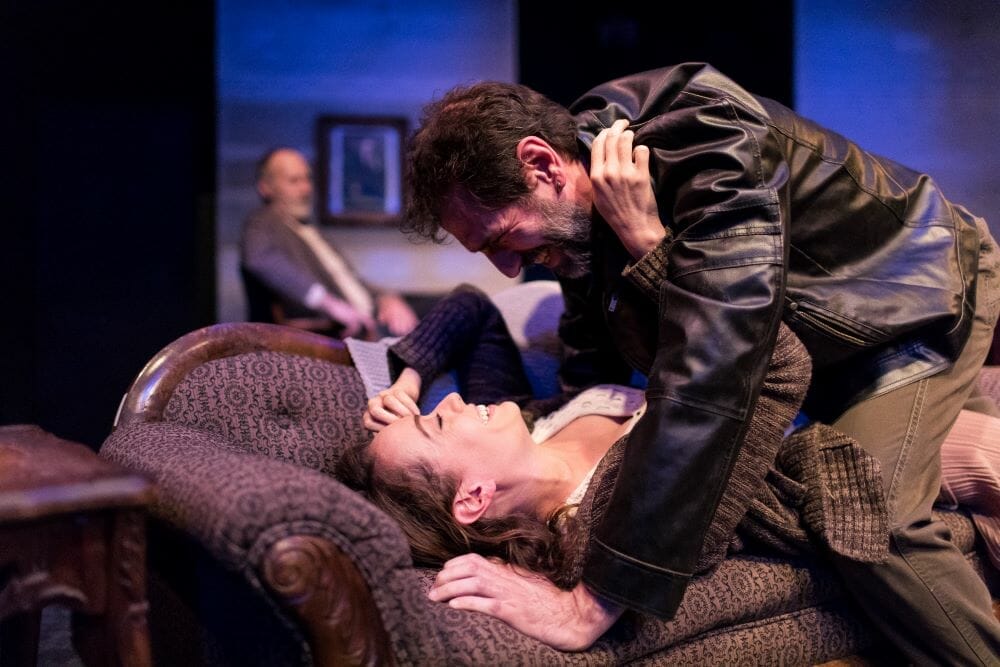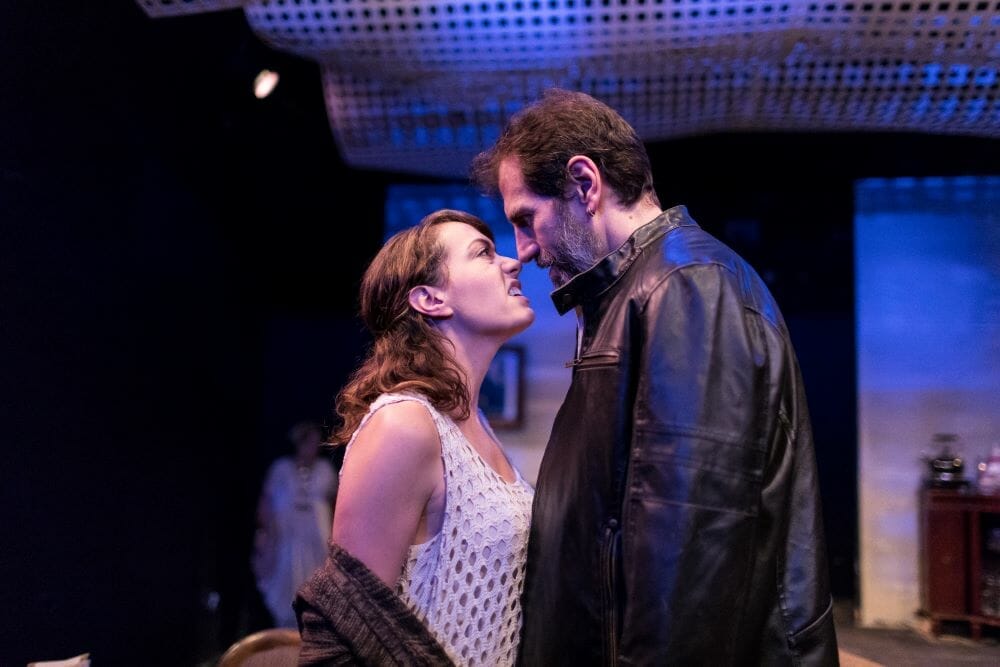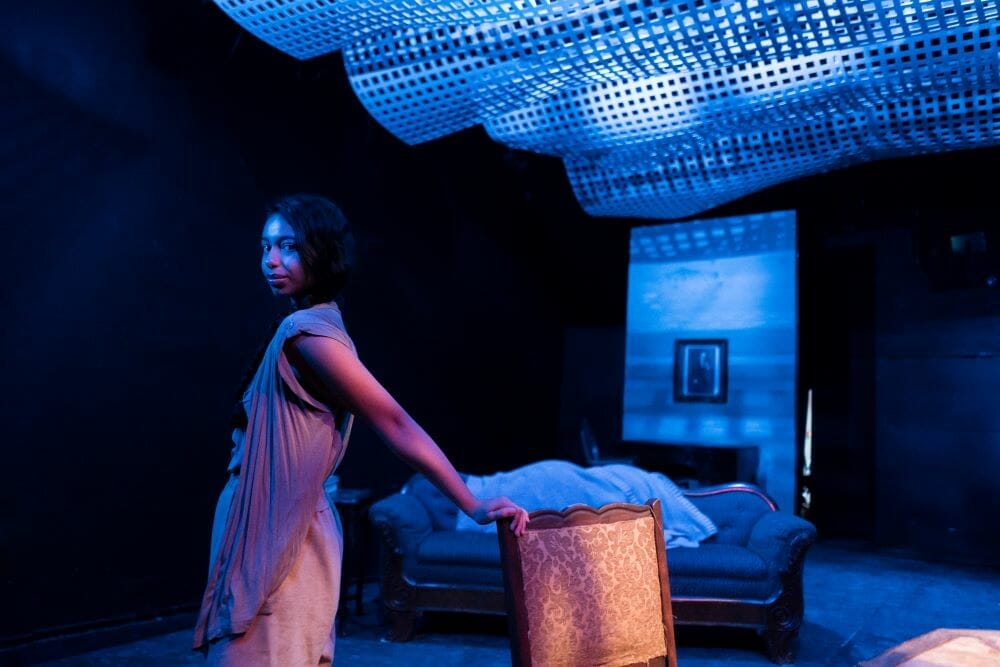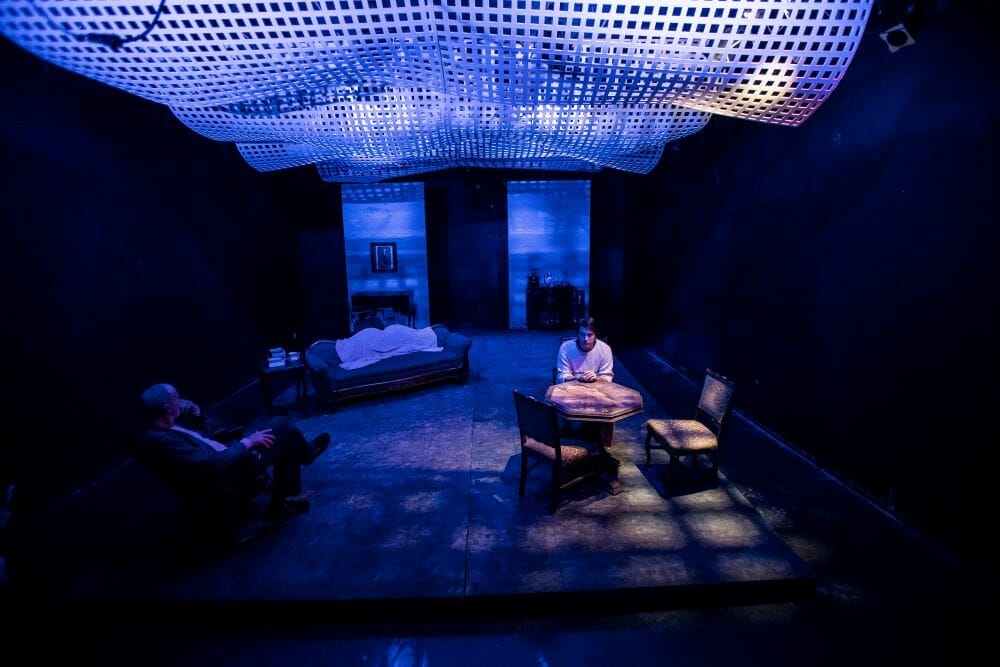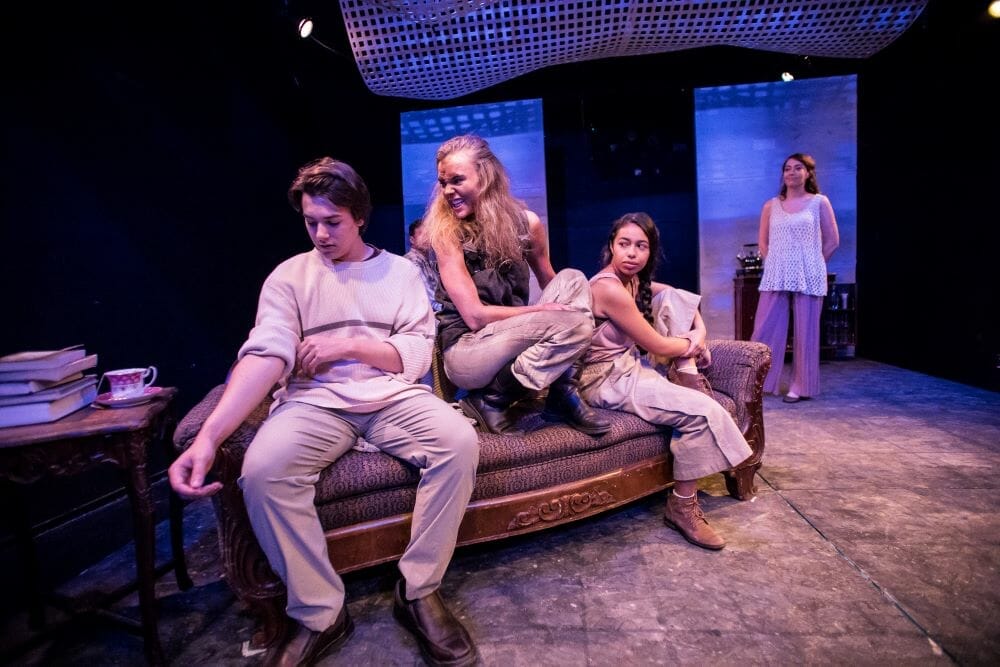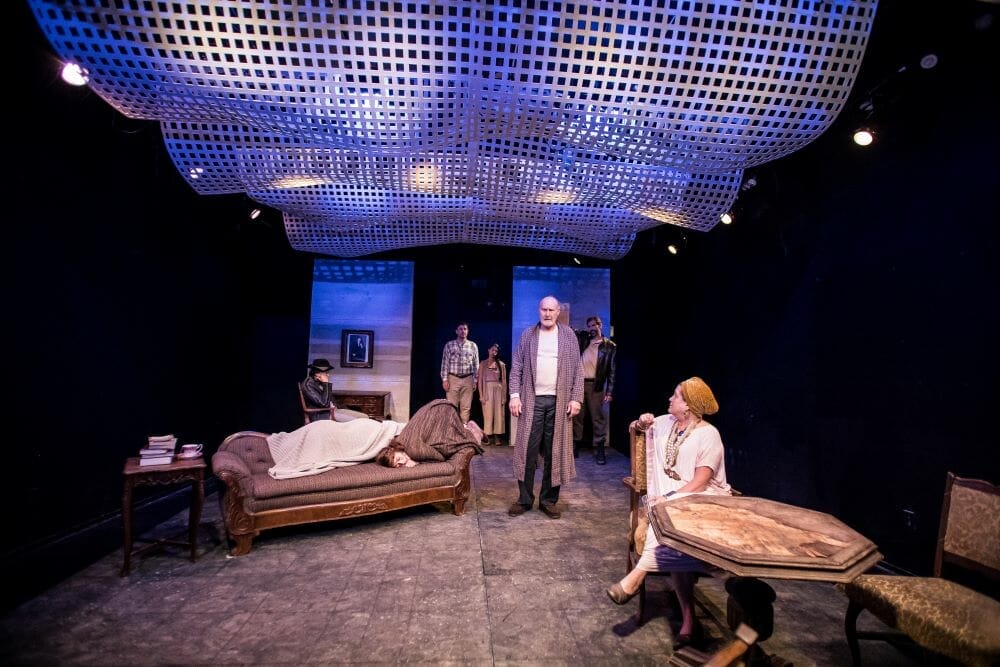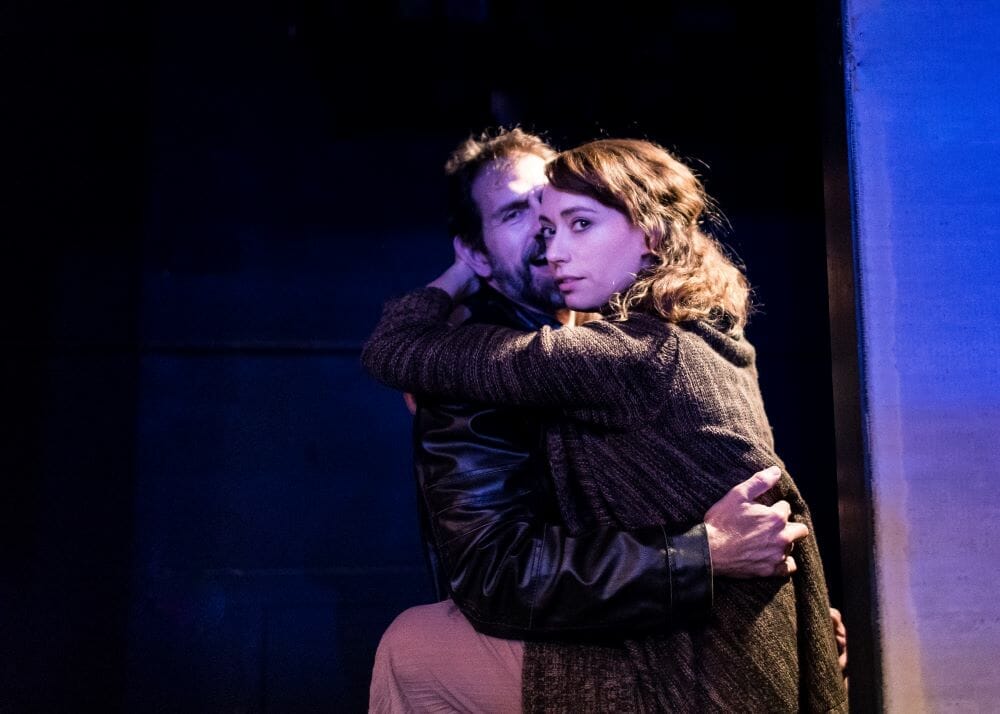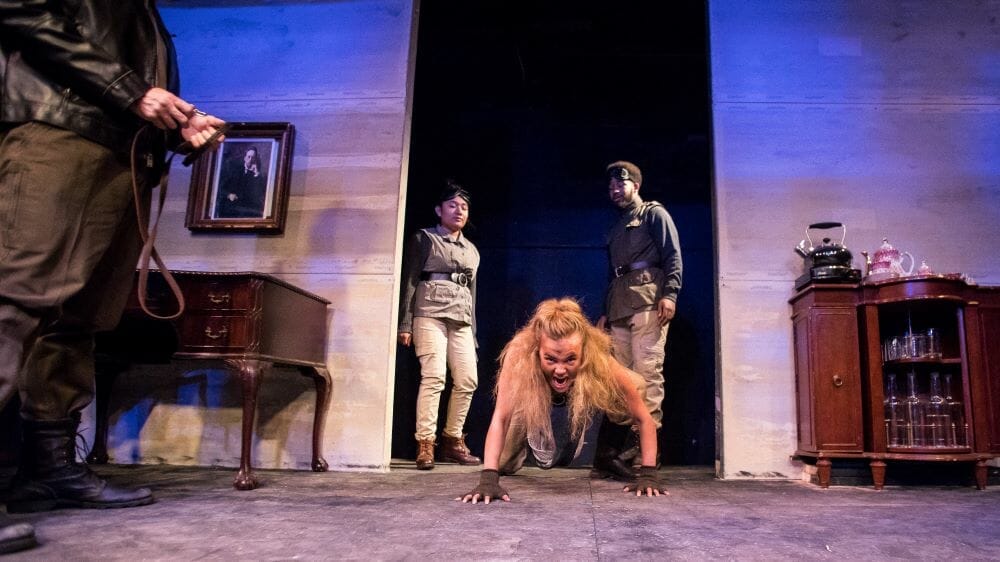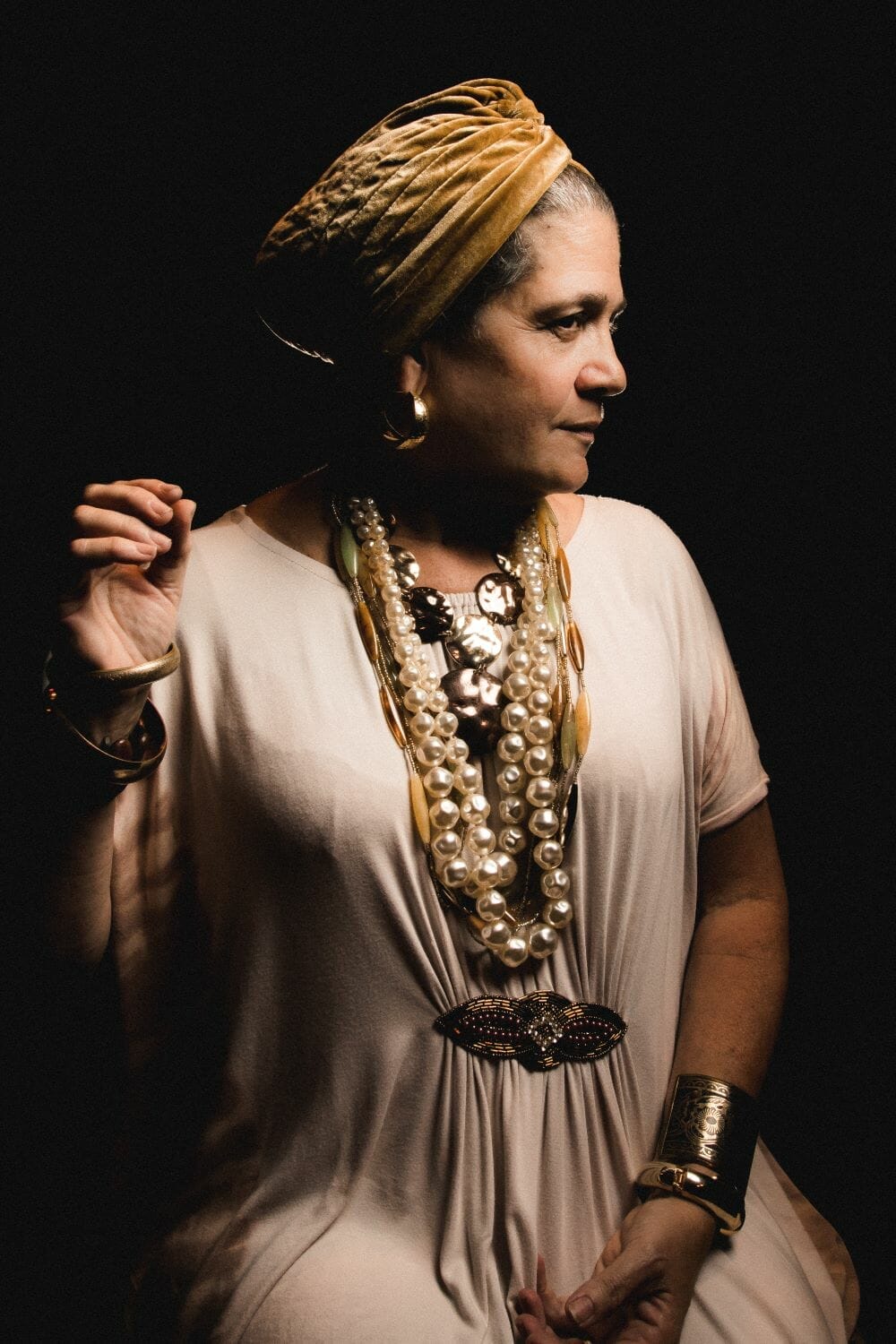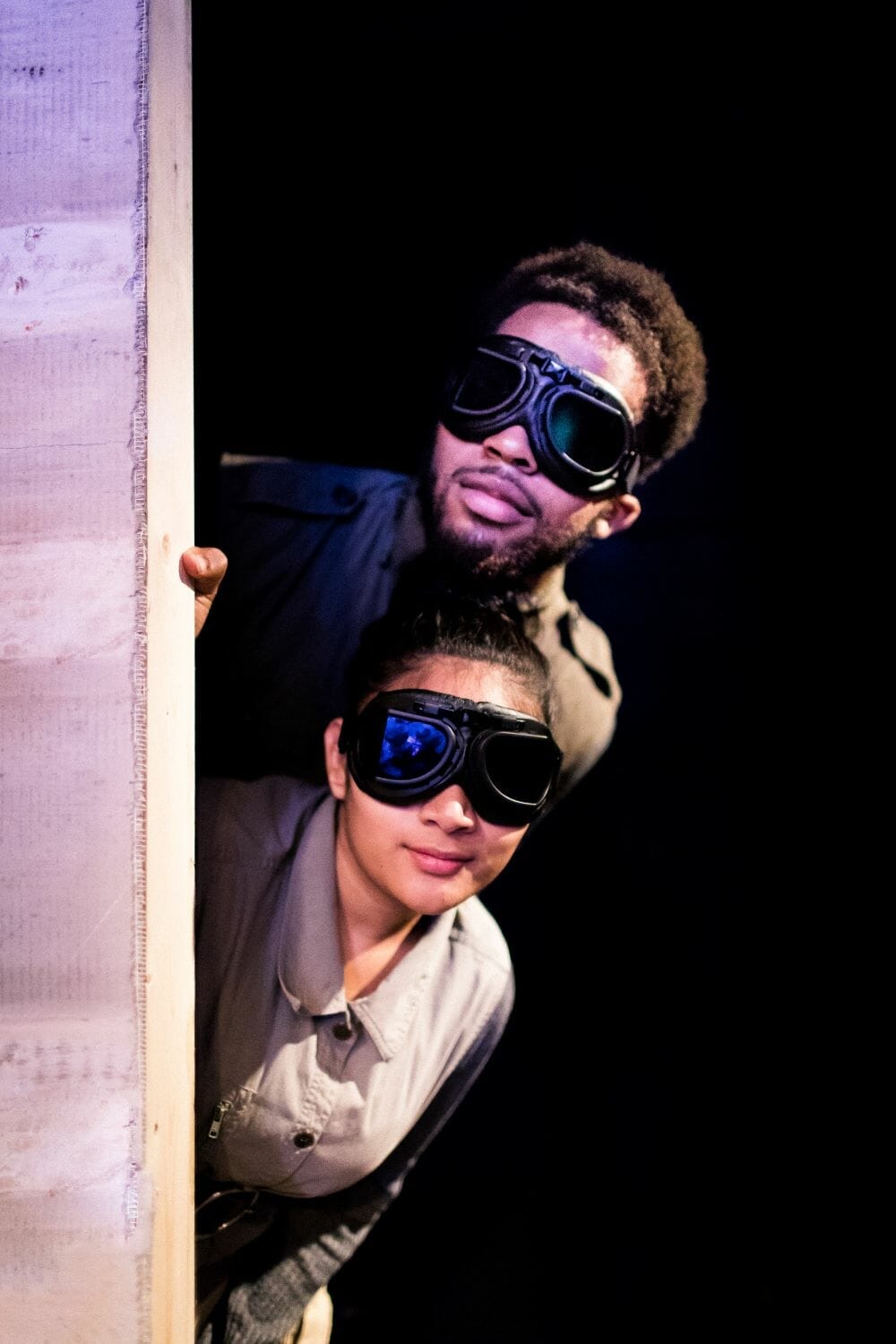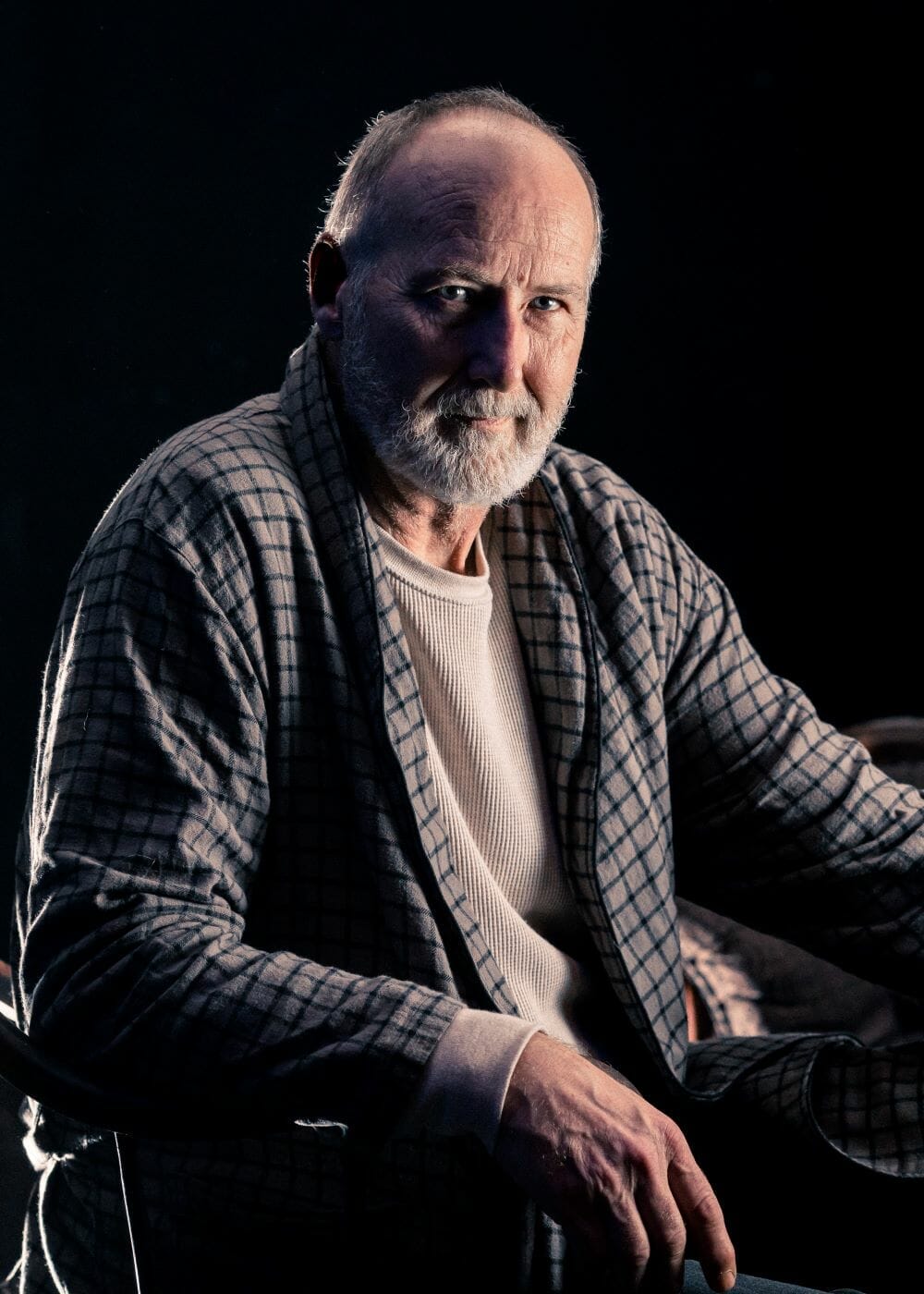Jason Hedrick's play is about the process of theatre which, in true Chekhov fashion, is centered on the quotidian desperation of a family in a failing society
Ennui… Disillusionment.,, Inadequacy…
Fair or not, that’s what many people associate with the plays of late nineteenth century Russian author and doctor Anton Chekov. This also is the interpretation of an exhausted-looking man we see taking a break from reading his own Chekhov anthology. He stares into space. Of course, if you also had been moderating the worst parts of the Internet for the better part of half a century amid environmental catastrophe,you might feel disillusioned too. And, you just might be inspired to put on your own production of Uncle Vanya.
That’s the premise of Vanya on the Plains, a world premiere at The Artistic Home by Jason Hedrick. A play about the process of theatre, in true Chehov fashion, it is centered on the quotidian desperation of a family in a failing society.
Snapping Out of Desensitization
Elijah and Gayle (Frank Nall and Kathy Scambiatterra) are two of the last people alive who don’t spend most of their time in augmented reality. This isn’t to say they’re off the grid. Elijah’s job requires him to spend most of his time watching terrorist beheading videos and the like. Yet, he also maintains a collection of physical books, including the Michael Henry Heim anthology of Chekhov’s mature full-length plays. Gayle goes back even further. She actually performed in plays, a genre so dormant that some young people don’t really understand the concept of live theatre. When Elijah suggests casting his family in Uncle Vanya, his daughter and grandchildren are confused, but he talks them into it. From the perspective of the actor, the rehearsal process of theatre is not so different from an open-ended video game or the ability to endlessly reinvent yourself through new online identities. And, it allows you to recast the people you’re familiar with seeing, too. This point though becomes the cause of some confusion.
Environmental and Interpersonal Catastrophe
Elijah’s experimentation with theatre turns out to be more about the journey than the production. Along the way, Hedrick treats the audience to a massive amount of world building. Most people on the Plains interact almost exclusively through shared dreams that allows them to be whomever they please. The savages in the bordering region seem to have no identities outside of what they’ve downloaded. Now that the screens are inside people’s heads, it’s hard to tell from the outside whether someone is half-paying attention to an app, sleepwalking, or having a mental health crisis. It usually doesn’t make any difference. While the old folks maintain massive amounts of vodka (and possibly don’t have access to clean water), most people are encouraged by the government to talk a lot of sedatives and the games seem to function as futuristic bread and circuses.
The Artistic Home Production is Brainy and Wry
As one might expect from the source material written with a doctor’s distance, there’s not a great deal of plot, but there are many rich characters. Each in Director Kayla Adams’s cast largely exist in separate worlds, but they have a chance to open up to the audience during their regularly scheduled therapy sessions with the government. Indeed, we get the sense that these interrogations are the most emotional contact people in this world ever get. The family comments that, while they love each other, they don’t really understand each other. There are some particularly humorous moments involving how unpredictable it is what the youth have and haven’t retained from the past. They use terms like “film noir” but don’t recognize “Russia.” Kevin Hagen’s set design suggests a house that is clean but Spartan, and according to Zachary Wagner’s costume design, Gayle is the only person who uses clothes to express herself. (Kathy Scambiatterra also performs her as the person most comfortable expressing extreme emotions in the real world, and most will likely agree with this reviewer that she’s a riot.)
Vanya on the Plains is a think-piece and likely to not leave an audience feeling any more joyous or redeemed than its namesake. But it does provide a neat update on the original’s themes amid a foreboding atmosphere, with plenty of dry humor.
Recommended
Note: This is now added to the Picture this Post round up of BEST PLAYS IN CHICAGO, where it will remain until the end of the run. Click here to read – Top Picks for Theater in Chicago NOW – Chicago Plays PICTURE THIS POST Loves.
Cast:
Frank Nall (Elijah), Katherine Schwartz (Anka), Ariana Lopez (Sophia), Kathy Scambiatterra (Gayle), Mark Pacht (Carl), Benjamin Zarbock (Nicolas), Eric Simon (Barry), Ernest Henton (NCTP Officer 1), Karla Corona (NCTP Officer 2), Brookelyn Hebert (Caprice)
Production Team:
Jason Hedrick (playwright), Kayla Adams (director), Alyssa Balogh (assistant director) Kevin Hagan (set design), Zachary Wagner (costume design), Petter Wahlback (sound design), Mark Bracken (lighting design), Edmond Hood (stage manager)
When:
Thru October 27, 2019
Thursdays at 7:30 pm
Fridays and Saturdays at 8:00 pm
Sundays at 3:00 pm
Running time is two hours and twenty minutes with one intermission.
Where:
The Artistic Home Theatre
1376 W. Grand Avenue
Chicago 60642
Tickets:
$34+
Check for Half-Price Deals from Hot Tix:
For full-priced tickets and ticket availability visit The Artistic Home website or call 866-811-4111.
Photos: Joe Mazza, Brave Lux Photography
Note: Picture This Post reviews are excerpted by Theatre in Chicago
Click here to read more Picture this Post stories about The Artistic Home.
About the Author: Jacob Davis

Jacob Davis has lived in Chicago since 2014 when he started writing articles about theatre, opera, and dance for a number of review websites. He is a graduate of the University of Illinois at Urbana-Champaign’s Department of Theatre, where he specialized in the history of modernist dramatic literature and criticism. While there, he interned as a dramaturge for Dance Heginbotham developing concepts for new dance pieces. His professional work includes developing the original jazz performance piece The Blues Ain’t a Color with Denise LaGrassa, which played at Theater Wit. He has also written promotional materials for theatre companies including Silk Road Rising.
Click here to find more Picture This Post articles by Jacob Davis.

